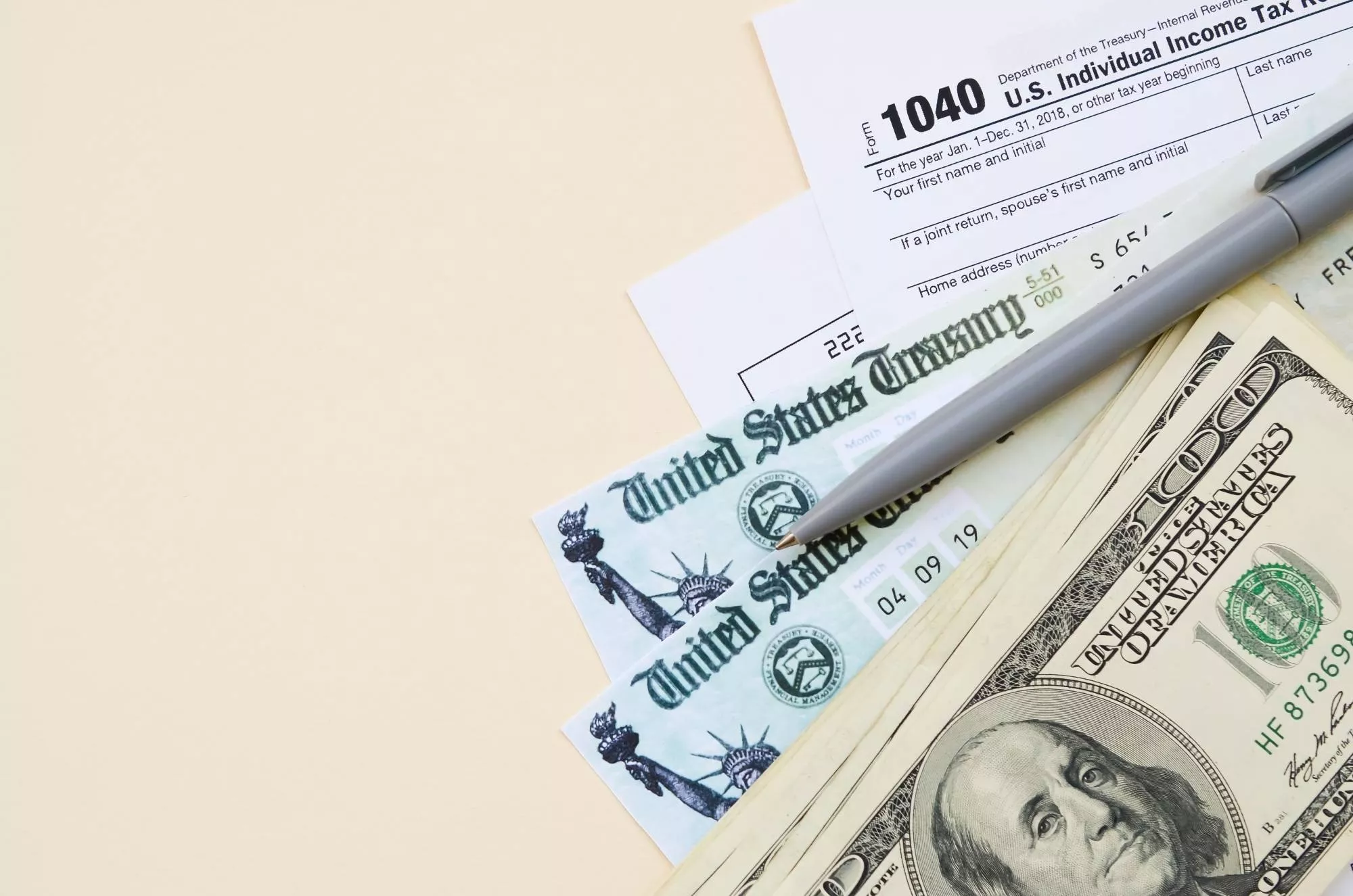
TABLE OF CONTENTS
These days, credit card processing fees are simply the cost of doing business. However, the impact of credit card processing fees on your tax liability is another story. Whether processing fees are a tax-deductible expense or not depends on if you’re a business or an individual. Below, we examine your business’s tax responsibilities for credit card accounts, as well as credit card processing fees.
What are Credit Card Processing Fees?
If your business accepts credit card payments, you already know how every swipe, dip, or online purchase made with a credit card comes with processing fees. Though these fees vary by the payment processing company and the payment method (via card reader, online, or card-not-present) they’re standard, regulated, industry-wide, and non-negotiable. They fall into two types:
- Processing Rates: A percentage of each payment charged at a rate determined by the average transactions made by your business.
- Transaction Fees: A flat fee charged to accept credit card payments, applied to each transaction.
These fees accumulate. Quite often, they represent a large percentage of overhead for business owners.
What is a Tax Deduction?
A tax deduction helps lower a person’s or an organization’s tax liability. This is done by subtracting the deducted amount from the total income, or profit, subject to taxation.
For organizations, these are the day-to-day operating expenses of your business. These expenses must be considered both ‘ordinary’ and ‘necessary,’ according to the IRS.[1]IRS. “Publication 535 (2020), Business Expense“. Accessed January 21, 2022. They must be ordinary in that they are “common and accepted” within your industry. They must be necessary in that they represent materials required for your business to generate profit. A few examples include:
- Employee salaries
- Office space rental fees
- Advertising/marketing
- Insurance
- Banking and processing fees
- Machinary and/or raw supplies
- Equipment, like computers and printers
- Vehicles used for company work
- Cleaning services and cleaning supplies
- Accounting and tax services
In 2018, the IRS approved new tax deductions.[2] IRS. “The Highlights of Tax Reform for Businesses“. Accessed January 21, 2022. Check out their Tax Withholding Estimator to discover deductions for which your business may qualify.
What’s the difference between a tax credit and a tax deduction?

Don’t confuse a tax deduction with a tax credit. Both are nice perks but are applied differently, having a different impact on your business’s bottom line.
A tax deduction lowers your taxable income by lowering the tax rate, or bracket, used to calculate your tax burden. For example, if you’re in the 10 percent tax bracket, a $1,000 deduction would reduce your taxable income by $100 (0.10 x $1,000 = $100). This might not seem like much, but it can really accumulate. And a lesser tax bracket may mean a larger return come tax time.
However, many consider a tax credit even better than a tax deduction. This is because a tax credit may be directly subtracted from your income. In other words, a credit reduces the overall amount of income subject to taxation. This either lowers your tax bill or increases your refund from your withholding. Certain tax credits can even give you a refund without withholdings.
Which Credit Card Fees Are Tax Deductible?
Businesses owners can deduct all credit and debit card processing fees, credit card fees, finance charges, and even fees associated with paying taxes. Taking advantage of the deductions offered by the IRS is a way to pocket more of your earnings that have been paid out in the form of the above expenses.
You may deduct any and all fees that come with your business credit card, including:
- Annual fees
- Overdraft charges
- Balance transfer fees
- Late fees
- Transaction processing fees
- Foriegn transaction fees
- Interest on past transactions
- Miscellaneous charges
As a business, you can deduct these fees as one of the great perks of business ownership.
Credit card tax deductions for business owners
According to the IRS, credit card fees are tax-deductible expenses for businesses, along with processing charges on credit card sales and fees associated with a business’s own line(s) of credit. The percentages deducted may seem small, but they add up.
When filing their taxes, business owners can deduct nearly all business expenses, credit card processing fees included.
What about processing fees ?
There is some debate as to whether or not processing fees are considered a tax-deductible expense. The IRS released some guidelines on this topic. According to the IRS, tax-deductible expenses are ordinary and necessary, based on Section 162 of the Internal Revenue Code. The meaning of “ordinary” and “necessary” in this case is as follows:
- Ordinary – The expense isn’t unusual for your business.
- Necessary – The expense helps you run your business.
In regards to credit card processing fees, the IRS stated that these fees are typically not considered necessary for a business. This is because businesses can accept other forms of payment, like debit cards, electronic checks, ACH transfers, or cash.
However, there are a couple of exceptions to this rule. If you run your own business as a sole proprietorship or partnership, then the credit card processing fees are considered necessary, therefore tax-deductible.
If you’re not sure whether or not your processing fees are tax-deductible, it’s best to seek the advice of your CPA. They will help you understand how the IRS views this type of transaction in terms of tax deductions.
What fees are not deductible for businesses?
Any personal transactions you process on your business card aren’t tax-deductible. Neither are fees––interest, overdraft, transactional, or anything else––resulting from those personal transactions.
Certain accounting platforms make it easier to categorize business and personal expenses, but they are far from perfect. Make sure you haven’t understated or overstated any write-offs that could leave you vulnerable to an audit. In other words, best to keep business spending and personal spending as separate as possible.
There are also a few types of fees that business owners cannot deduct when filing their taxes. These include:
- Membership fees to organizations, like the NRA or ACLU
- Dues for clubs or professional associations
- Fines and penalties
Again, these are just general guidelines, so it’s important to speak with your CPA to find out what is and what isn’t deductible for your specific business.
Credit card tax deductions for individuals
Individuals filing as themselves, not as a business, are not allowed to deduct credit card fees. They also cannot deduct any interest, overdraft, transactional, or any other fees resulting from personal use. There are plenty of deductions that can lower Uncle Sam’s bill for individuals: mortgage-interest deduction, student loan interest deduction, and others detailed on the IRS website.
Similarly, personal transactions on your business card are also non-tax-deductible. Though the IRS doesn’t require you to have a dedicated business debit or credit card, this is highly recommended. In the case of an audit, it will be you who bears the burden of proof. This means you’ll need meticulous records, receipts, and paperwork supporting deductions.
So, keep finances as separate as possible: bank accounts, debit cards, and credit cards. This prevents you from accidentally taking deductions for which you don’t qualify, while also taking full advantage of all the standard deductions allowed for your business.
Can You Deduct Credit Card Interest?
Yes, you can deduct credit card interest paid on your business credit cards. However, this interest must have only accrued for business-related expenses. If business and personal expenses are made on the same card, figuring out which interest charges apply to which purchases is your responsibility. One card for personal spending and one for business spending can reduce the headache of tallying up the deductible interest and fees at the end of the year.
If you’re planning to deduct credit card interest and fees connected to business expenses, be sure to report them correctly on Schedule C of Form 1040.
Common Mistakes
- Using a business card for personal expenses. This creates a nightmarish paperwork trail that would give any business owner a headache. Keep it simple by keeping it separate.
- Putting Information in the wrong place. If you’re planning to deduct credit card interest and fees in connection with business expenses, you need to report them correctly on your tax return. For those who use a Schedule C, the line item is called “Miscellaneous Expenses.”
- Not deducting credit card fees. Deducting business expenses is essential to lowering your tax obligation, expenses which include, among others, all credit card fees, penalties, surcharges, and other various fees.
Personal expenses on a business card
Accidentally or otherwise, the IRS does not permit you to deduct personal expenses from your business income for tax purposes. As a general rule, keep personal expenses separate from business expenses to avoid confusion.
Best Practices for Business Owners
Conduct your business well, keep accurate records, and report income, as well as expenses, to the IRS, and you should have no problem filing your taxes. Some best practices for business owners to follow include:
- Keep reciepts for all business-related expenses. Good recordkeeping is vital. It’s best to have easily accessible receipts, credit card statements, and other financial information to present to an auditor upon request.
- Never use a business card for personal expenses, or vice versa. If you must, choose to get reimbursed for work expenses as your standard practice.
- Report all deductions, interest paid, and charges to the IRS. Which tax form(s) you fill out depends on what kind of business structure you run (corporation, partnership, LLC, etc.) but for Schedule C, see “Miscellaneous Expenses.”
- Keep financial records handy, especially your TIN, likely an EIN, as well as previous years tax returns for reference. If ever you cannot find your TIN and/or EIN, we have guides on how to find your TIN and how to find your EIN.
- Calculate your credit card expenses for the year in specific categories. Ensure you have all the correct numbers. And if you run into any questions, it’s best to ask a tax professional.
Report interest and fee deductions

When it comes to credit card processing fees, the best practice is to keep good records and consult with a tax professional. This ensures you’re taking advantage of all the deductions for which you’re eligible and avoiding any costly mistakes. When deducting credit card processing fees, be sure to report the interest and fee deductions on your business tax return.
Again, it’s important that personal expenses are not charged on a business credit card. This includes items like groceries, gasoline, entertainment, etc. If these expenses are not related to your business, they cannot be deducted.
Are there any other things I should know about deducting credit card fees?
Yes! There are a few other things you should keep in mind when deducting credit card processing fees:
- You may only deduct expenses that are ordinary and necessary. This means that the expense must be common and required in your industry.
- You may only deduct expenses that are “directly related” to your business. This means that the expense must have a clear connection to your company’s income or operations.
- You may only deduct expenses that are “reasonable.” This is the amount you would have spent if conducting your business at a normal rate.
Final Thoughts
Accepting credit card payments, and the associated fees is part and parcel when doing business today. Come tax time, however, the need for careful organization of such fees becomes clear. The IRS allows organizations to deduct their credit card expenses––among other necessary expenditures––and, in doing so, helps ease U.S. business owners’ tax burdens.





